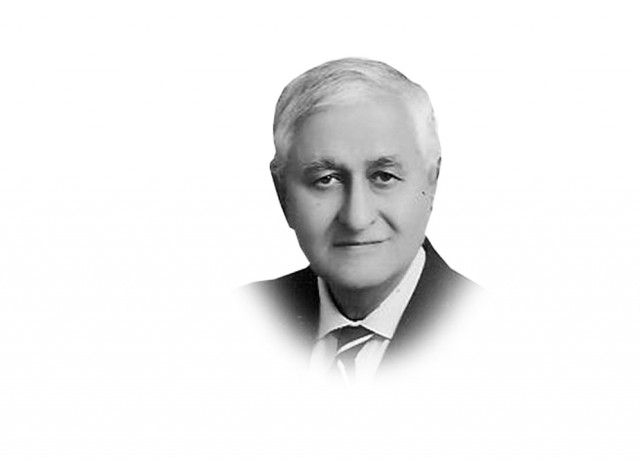Central Asia, making up for lost time
Prime Minister Yousaf Raza Gilani’s visit to Kazakhstan was a welcome step in the right direction.

Kazakhstan plays an increasingly important regional and international role. It hosted the Organisation of Security and Cooperation in the Europe summit in December 2010, and this year it hosted the Shanghai Cooperation Organisation summit, the International Convention of Faith Ministries and the World Islamic Economic Forum. Kazakhstan is the major driver of the Conference on Interaction and Confidence Building Measures in Asia.
Pakistan was the second country after Turkey to recognise the CARs when they became independent at the end of 1991. There was euphoria in Pakistan as to the relationships and links we would forge with the CARs. The latter wanted to end their dependence on Russia for exporting energy and it was clear that we were in competition with the West, Russia, Turkey and Iran for accessing energy supplies for our own use.
Pakistan midwifed the Central Asian Gas Pipeline consortium, led by the Union Oil Company of California (Unocal) in the mid 1990s, to build a gas pipeline from Turkmenistan across Afghanistan, leading to Pakistan. The plan was to create an energy corridor with a parallel oil pipeline, using un-utilised existing pipelines in Central Asia, stretching across Turkmenistan, Uzbekistan and Kazakhstan. In Ashgabat, the Uzbek president signed an agreement with the presidents of Pakistan, Turkmenistan and Afghanistan to inject Uzbek gas into the pipeline. The Afghan factions, who all welcomed the pipeline project would have realised, from the economic activity generated, that peace was better than war. The moderate Taliban faction would have prevailed and the subsequent history and suffering of Afghanistan would have been different. However, the United States turned its face and Unocal dropped the project.
Subsequently, it has been a lost decade and a half for Pakistan in terms of energy supplies from abroad. There were always three projects on offer, an underwater pipeline from Qatar, a pipeline from Iran and another from Turkmenistan. Seriously, negotiating with all three would have given leverage for a better price. It was obvious that the best pipeline would be the first one to be put in place.
However, we were not able to focus and to implement any project. Vested interests claimed that Turkmenistan had pledged its gas to Russia and its reserves were insufficient for a pipeline to Pakistan. While we procrastinated, China built a 7,000 kilometre pipeline from Turkmenistan, taking its gas to China.
It is still not too late. While the pipeline from Iran-Pakistan-India must go ahead, despite American reservations, as it is the most advanced so far, the gas pipeline from Turkmenistan across Afghanistan (Turkmenistan-Afganistan-Pakistan-India) should also be relentlessly pursued as should liquefied natural gas from Qatar, which happens to be the largest producer of the product in the world. Ultimately, Pakistan and India will need more than one natural gas pipeline. It would contribute significantly to Afghanistan’s stabilisation, creating construction and security employment, transit royalties and gas for its industry. Pakistan is a slumbering giant and it’s time to wake up and make up for lost time in Central Asia.
Published in The Express Tribune, September 15th, 2011.



















COMMENTS
Comments are moderated and generally will be posted if they are on-topic and not abusive.
For more information, please see our Comments FAQ